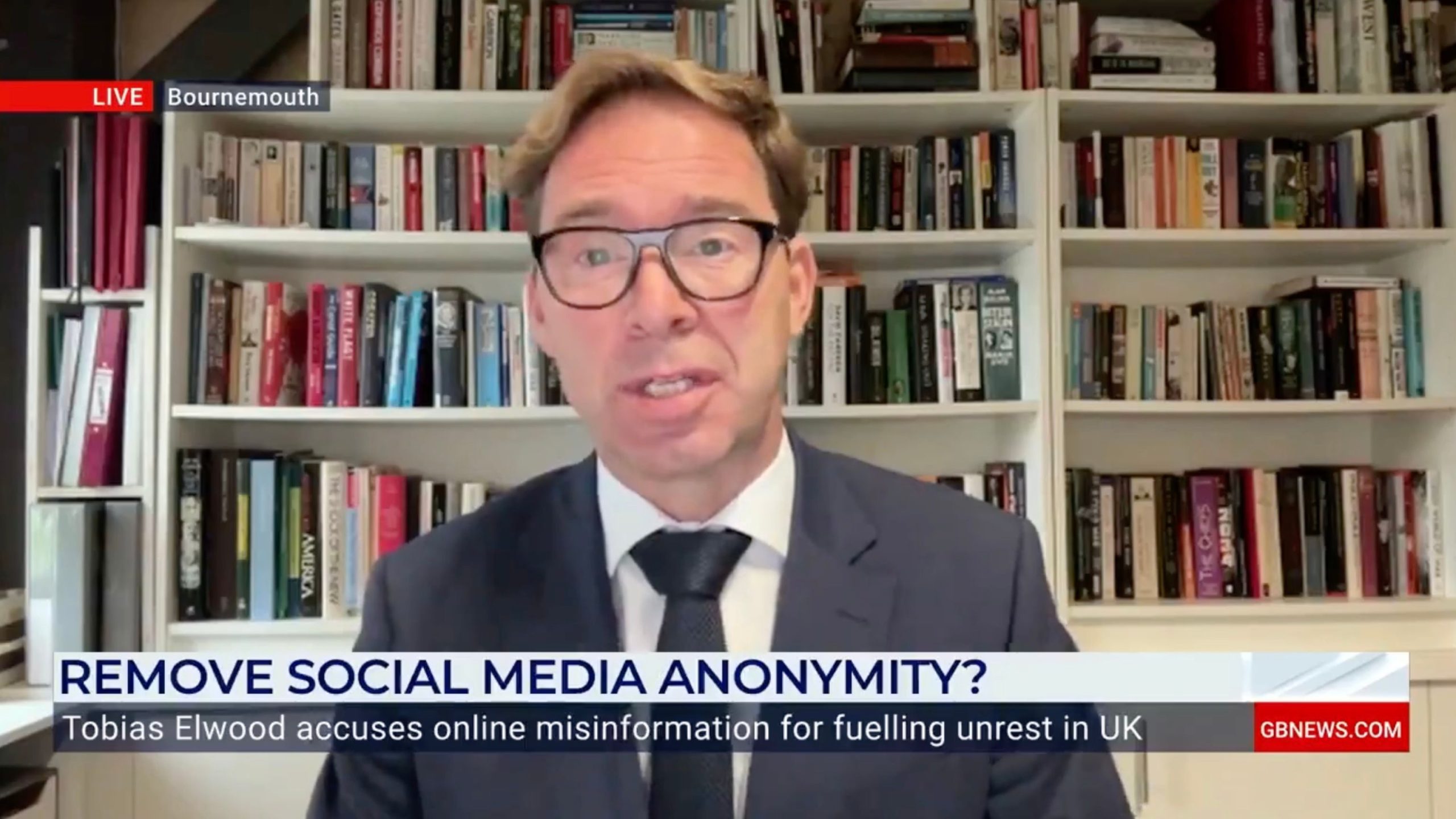In the wake of recent riots in the UK, Tobias Ellwood, former lawmaker, British Army reservist and a senior officer in the 77th Brigade, has voiced strong opinions on the role of social media in fueling public disorder. Ellwood, known for his previous support of vaccine passports and online vaccine certificate databases, emphasized the alleged negative impacts of online anonymity in a recent interview.
The UK’s 77th Brigade, officially known as the 77th Brigade of the British Army, is a unit that focuses on non-traditional warfare, including what is known as “information warfare” or “psychological operations.” Formed in 2015, it includes personnel from various sections of the military as well as reservists with expertise in a range of disciplines such as media, marketing, and public relations.
Related: The 2024 Digital ID and Online Age Verification Agenda
According to Ellwood, the swift spread of misinformation and the organization of disruptive activities are significantly enhanced by social media platforms. He proposed that no one should be able to maintain a social media account without full accountability, suggesting a nominal annual fee to remove anonymity for the use of such platforms as a measure to enforce responsibility among users.
The lawmaker drew a stark contrast between the positive representation of Britain at the Paris Olympics and the destructive behavior of rioters back home, stating that the ease of rallying and mobilizing through social media platforms exacerbates such issues.
“Have we advanced the rules to keep up with how social media is now dominating our society? ” Ellwood remarked, in an interview with GB News. However, the proposal has met with criticism. Benjamin Jones, Director of Case Operations at the Free Speech Union, who also appeared on GB News, argued that such measures could inadvertently harm vulnerable individuals who rely on anonymity for safety and expression. Citing the example of a young ex-Muslim lesbian woman, Jones pointed out that stripping anonymity could sever critical lifelines for those in oppressive situations.
Click here to display content from X.
Learn more in X’s privacy policy.
Jones further suggested that the focus on social media’s role in societal issues distracts from deeper, long-standing problems within the country, such as community segregation and integration challenges that predate social media.










